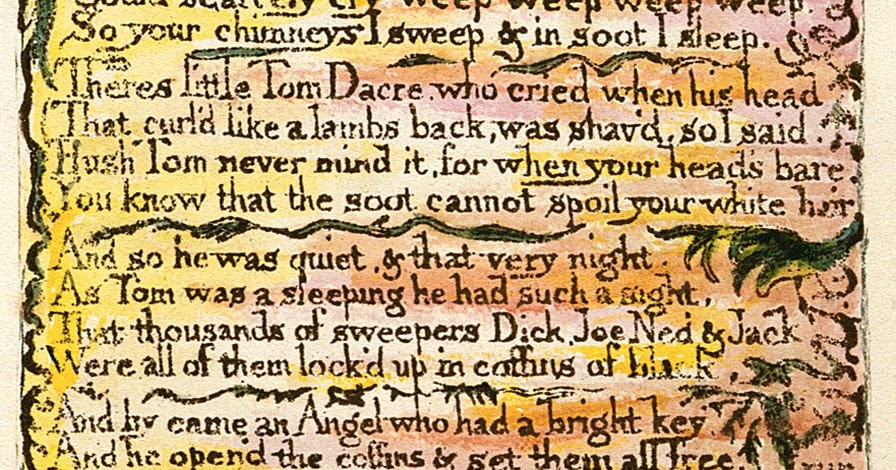The Chimney Sweeper Songs Of Experience Summary
The Chimney Sweeper is a poem by English visionary William Blake published in Songs of Innocence and Experience 1794.
The chimney sweeper songs of experience summary. Tom narrates his experience. As the name suggests the poem is about the little chimney sweepers who live a black life cleaning the soot of the chimneys. The speaker of this poem is a small boy who was sold into the chimney-sweeping business when his mother died.
The Chimney Sweeper is taken from Songs of Innocence. Through this poem Blake criticizes the institutions of the society which exploit small children. Get an answer for What is the detailed summary of The Chimney Sweeper from Songs of Experience by William Blake and find homework help for other Songs of Innocence and of Experience.
It led to urbanisation and thus slums child. The chimney sweeper songs of experience summary This poem titled The Chimney Sweeper appears in the collection Songs of Experience by William Blake and is often read as a counterpart of The Chimney Sweeper in Songs of Innocence. The poem is about the miserable life of the chimney sweeper.
In the 18th century small children were employed to sweep chimneys covered with soot inside. The Chimney Sweeper answers the question Where is your mother and father with this reply They have gone up to. It was published in two parts.
Because of their small size children around the ages of four and five were sold to companies to clean out chimneys. The life of those poor children was horrible. Thus The Chimney Sweeper Songs of Experience and Innocence by William Blake poem summary starts here.
The tone of the poem is sarcastic. Some children were trapped or burnt inside them. The Chimney Sweeper Songs of Experience Summary The speaker sees a child covered in soot lying alone in the snow.
He is a small boy. He is one of the chimney sweepers. One of them was sold by his father after the death of his mother.
The poem presents the picture. Songs of innocence was published in 1789 and Songs of experience in 1794. William Blakes The Chimney Sweeper is a two-part poem about a few chimney sweeps in late eighteenth-century England.
The chimney sweeper songs of experience summary Leave a Comment Uncategorized. He was sold to Master Sweep after his mother died. It was dangerous work.
It is the companion to a poem of the same name that appears in the earlier Innocence collection and works as a kind of update on the plight of the chimney sweepera young boy forced to do the horrible work of cleaning chimneys. In the first Chimney Sweeper from Songs of Innocence a young chimney sweeper recounts a dream another chimney sweeper named Tom Dacre had. This poem parallels its namesake in Songs of Innocence.
In the Songs of Experience Chimney Sweeper the mood is quite a bit different. Like Tom Dacre of the earlier poem the chimney sweeper is crying. The other child namely Tom Dacre cries when his head is shaved.
Sweep The portrayal of the misery of his position I weep. The Chimney Sweeper is a poem written by William Blake. Tom is the speaker in this poem.
In Tom Dacres dream an angel rescued all of the boys from coffins and took them to a sunny meadow ie. He tells about the miseries of the boy that is wandering in the. As with the I version of The Chimney Sweeper Blake consciously employs the irony of weep as.
He recounts the story of a fellow chimney sweeper Tom Dacre who cried when his hair was shaved to prevent vermin and soot from infesting it. Where that poem posits a subtle satirical message against the type of religion that brings false comfort to abused children this version strikes directly at the problem. William Blake Poems Summary The poem The Chimney Sweeper from Songs of Innocence is about two children who are forced to work as sweepers in a Chimney.
When asked where his parents are he replies. Although many scholars and critics have successfully annotated both the Songs of Innocence SoI and the Songs of Experience SoE versions of William Blakes The Chimney Sweeper and have noted the poems social and political implications Blakes mention in SoI of an Angel with a bright key who frees thousands of sweepers who are locked up in coffins of black has. The Chimney Sweeper present in both Songs of Innocence and Songs of Experience are heart wrenching pieces of poetry written by Blake to shed light upon the oppression that the underage children went through just so that the greedy so-called upper class members of the society and their money-hungry parents who sold them off could exploit their innocence and labor to suit their needs.
The Chimney Sweeper E - Language tone and structure Language and tone Irony. The poem The Chimney Sweeper from Songs of Experience by William Blake brings into light the animal-like condition of children during the 17th and 18th-century era. The poet is trying to highlight the social injustice done to him.


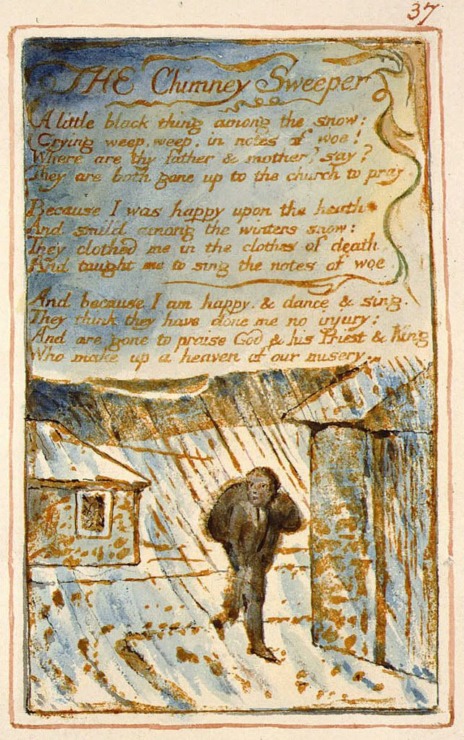





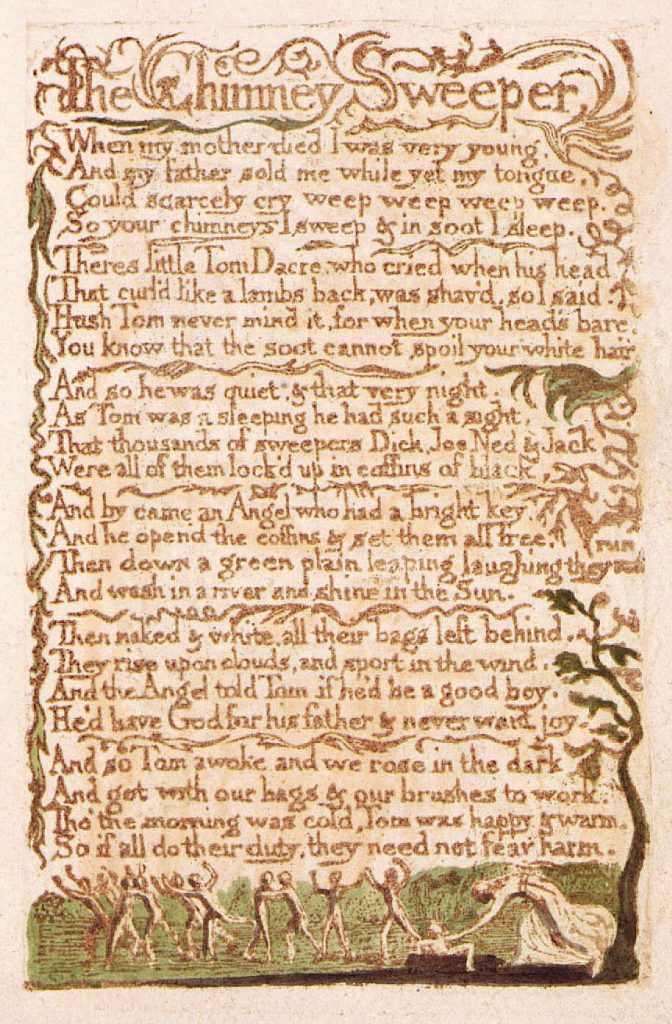
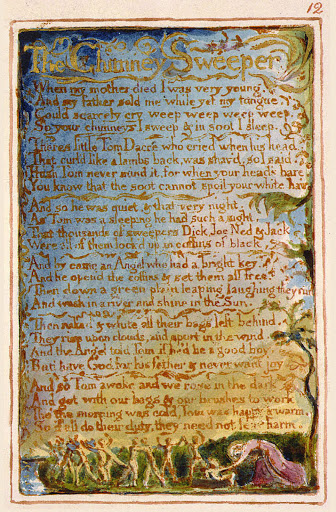
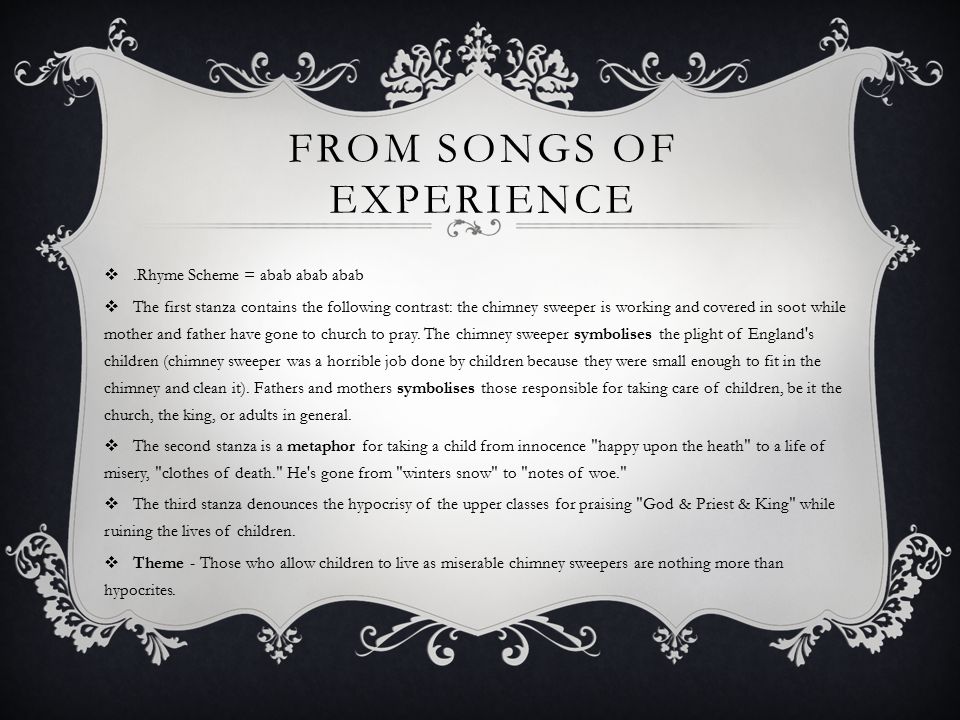
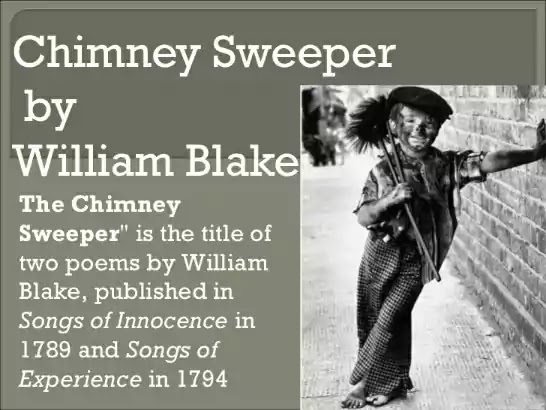
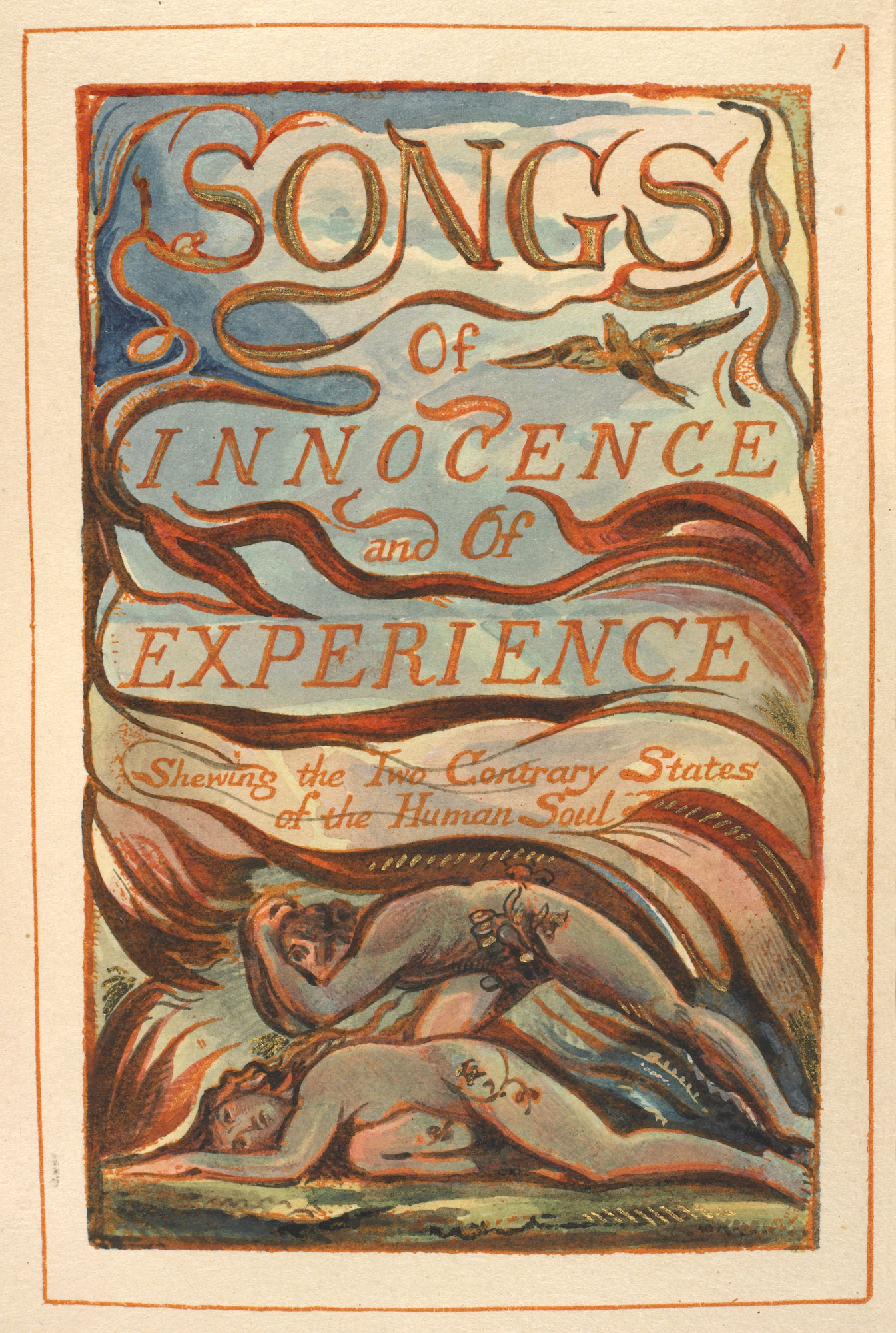


.jpg)


